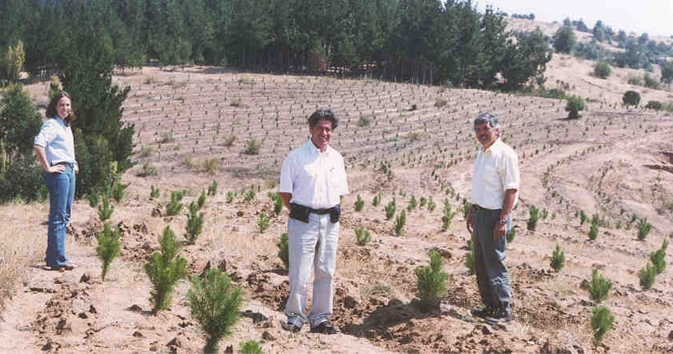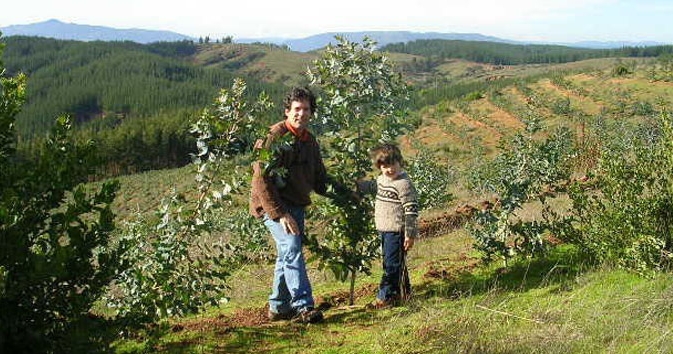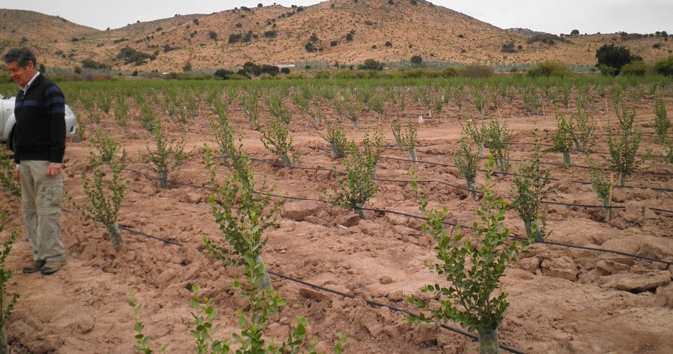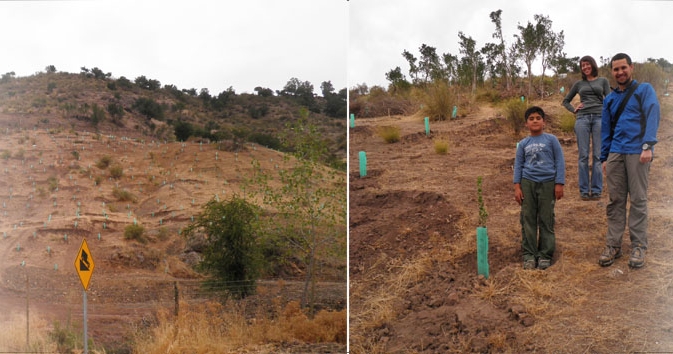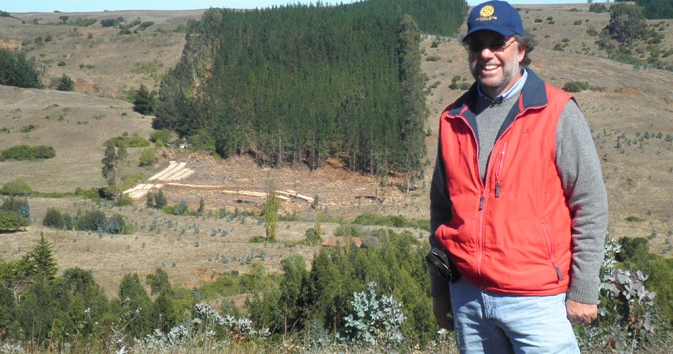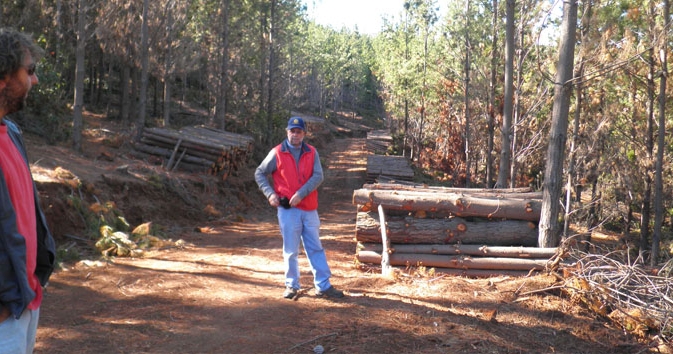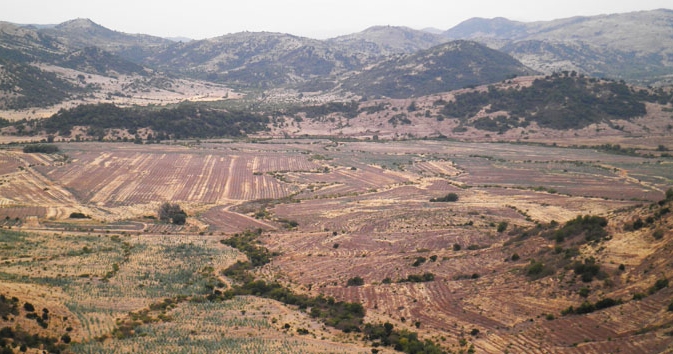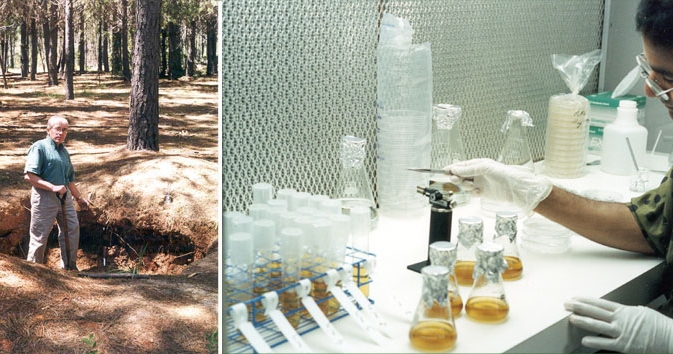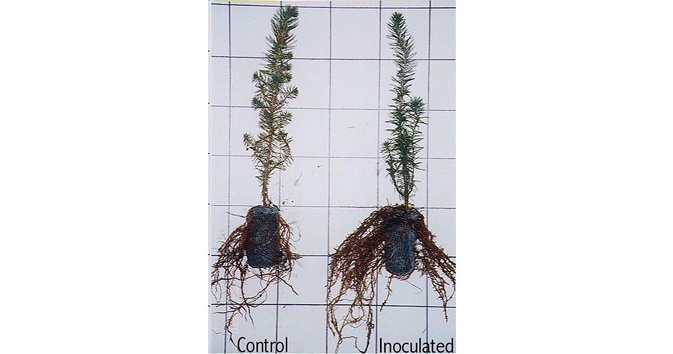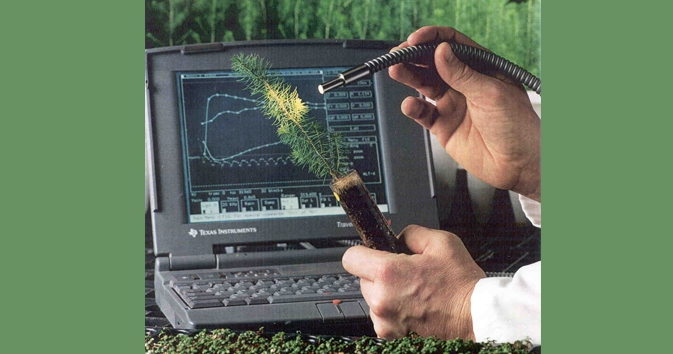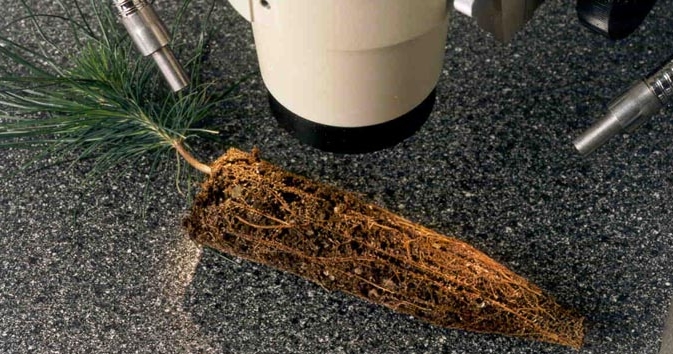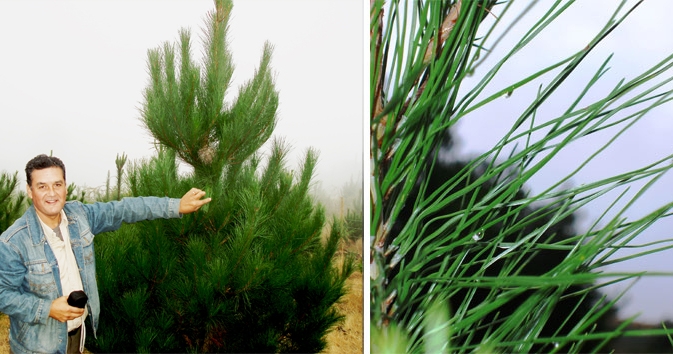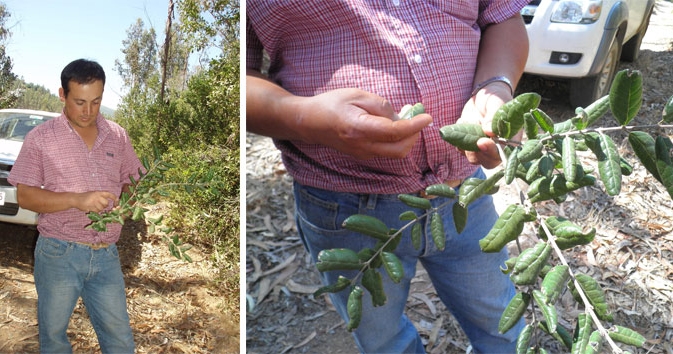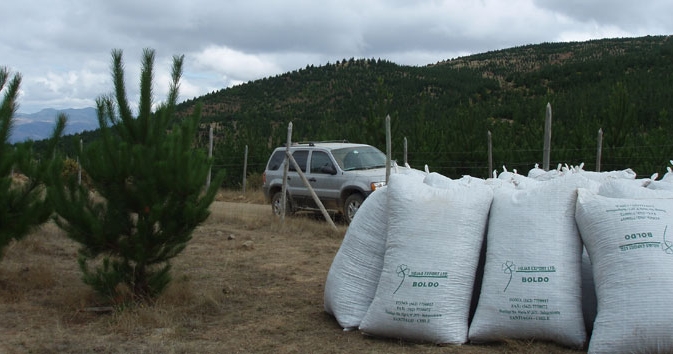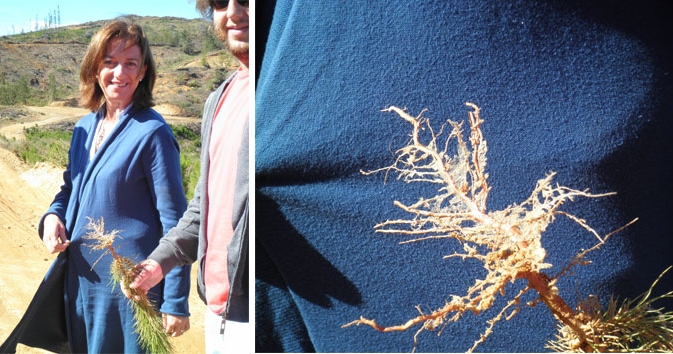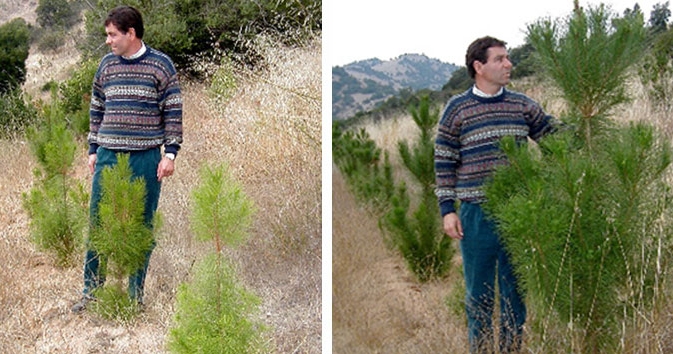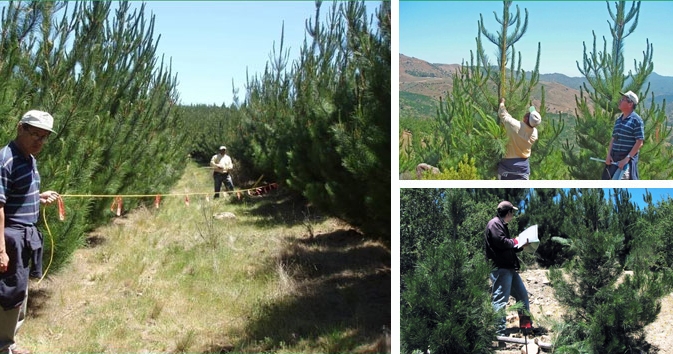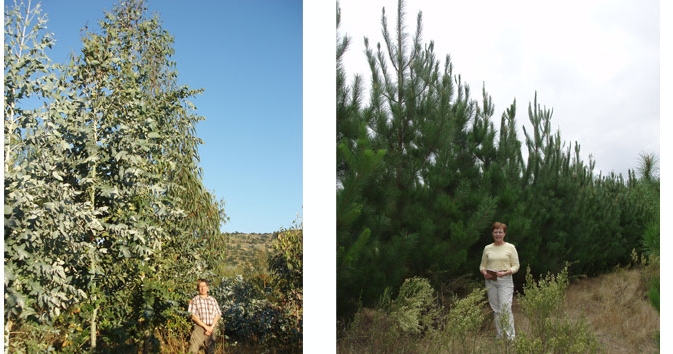Our Story
Mikro-Tek supplies carbon offset creditsOffsets are the mechanism by which the impact of emitting a tonne of CO2 can be negated or diminished by avoiding the release of a tonne elsewhere, or by absorbing a tonne of CO2 from the air (domestically or internationally) that otherwise would have remained in the atmosphere.
Click here to view the full glossary to industry to help them reduce their carbon footprint. Registered credits are generated in forestry projects using Mikro-Tek’s proprietary technology.
The company was started in 1990 with a production facility in Timmins, Ontario, and a branch office was opened in Santiago, Chile in 2004. Their environmental biotechnologyBiotechnology is the application of scientific and engineering principles to process living organisms into goods and services. Living organisms are biological agents such as bacteria, fungi, plant and animal cells, and parts of all the preceding e.g. enzymes. Biotechnology products include: cheese, yogurt, alcoholic beverages, antibiotics, vaccines, ethanol, acetone, animal feeds, nitrogen-fixing inoculants, tissue culture, water purification, and effluent treatment. Mikro-Tek uses mycorrhizae, naturally occurring soil-inhabiting fungi that form a symbiotic relationship with the roots of most terrestrial plants, resulting in increased water and nutrient uptake. This leads to increased survival and growth of plants, and a corresponding increase in the carbon removed from the atmosphere through the processes of photosynthesis and carbon sequestration.
Click here to view the full glossary methods were first demonstrated in domestic forestry projects in the boreal forest across Canada. Data collected from approximately 10 million planted forest seedlings showed average increases in survival and/or growth of 25% as a result of Mikro-Tek’s mycorrhizal inoculation. Those field results were used to certify product safety and to obtain commercial product registration as Microbial Supplements under the Fertilizers Act from Agriculture Canada.
Working with Canada’s Climate Change Technology Early Action Measures (TEAM) program the company went on to demonstrate the technology’s application in faster growing forestry projects in Chile. Indigenous species and strains of mycorrhizanatural soil microbes that improve the health and growth rates of plants. In nature, healthy soils contain these beneficial organisms, but they are deficient in eroded, heavily used and degraded soils. Industrial disturbance to the soil in large-scale agricultural practices, forestry cutovers, or mining activity reduces or destroys these beneficial micro-organisms. The application of the microbes to seedlings prior to planting reduces the need for chemicals such as fertilizers and herbicides and provides increased stress resistance to the seedlings before they are exposed to environmental stresses such as transplant shock, or extremes of temperature and moisture. Mycorrhizal inoculum is produced in Mikro-Tek's facility in Timmins for shipment to project sites anywhere in the world.
Click here to view the full glossary were collected in-country, cultured, screened and compared to others for effectiveness. The mycorrhizal species and strains that provided the greatest increase in nutrient uptake and growth for the targeted tree species were mass-produced using Mikro-Tek‘s proprietary procedures and applied to seedlings in the nursery before field planting. In 2006, three-year field measurements showed statistical increases in growth of up to 45% for Eucalyptus, 89% for Radiata pine, and 165% for Quillay. Read more here: Carbon Sinks Report (English). Carbon Sinks Report (Spanish)
Independent consultants contracted by TEAM verified the technology using field data collected in Canada and in Chile, and modeled the resulting increases in carbon sequestrationReduction of net emissions of carbon dioxide (CO2) can be accomplished in two ways: either by reducing the rate at which CO2 is added to the atmosphere (e.g. those produced from burning fossil fuels or from clearing and burning forests), or by increasing sequestration the rate at which CO2 is removed from the atmosphere (e.g. by storing additional carbon in forests, soils and other carbon sinks). The latter can be accomplished through land management activities including re-vegetation, reforestation and afforestation as well as forest, cropland and grazing land management. Through photosynthesis plants remove carbon dioxide from the air, give off oxygen, and store the carbon as biomass. About one half of the dry weight of plant biomass is carbon, and one tonne of carbon in biomass represents 3.67 tonnes of atmospheric carbon dioxide.
Click here to view the full glossary in order to provide assurance that the technology is scientifically verifiable using the stringent guidelines of the Kyoto Protocol. They concluded that Mikro-Tek’s mycorrhizal strains and inoculation procedures had the potential to generate between 23.5 and 31.8 tCO2e per hectare, per rotation, with Canadian boreal species on reforestation sites. pdf Executive Summary
In 2010 Mikro-Tek registered their Chilean project with the United Nations the first forestry project ever in Chile, seventh project in the world, and the first by a Canadian company to be approved under the Clean Development Mechanism (CDM)A market mechanism defined in Article 12 of the Kyoto Protocol as a project between a developed country and a developing country that provides the developing country with the financing and technology for sustainable development and assists the developed country in achieving compliance under the regulatory system in which they normally operate. The project can occur in any country that is a member of the CDM Annex 2.
Click here to view the full glossary of the Kyoto Protocol.
With more than 29 million inoculated seedlings in the Canadian boreal forest, and approximately 7,500 hectares established in Chile, Mikro-Tek now has an inventory of 1.4 million carbon offset credits available to large industrial carbon emittersNormally defined as industrial entities that emit more than 25,000 tCO2e annually. (Some jurisdictions use the threshold of 100,000 tCO2eannually, but most countries are moving to the lower rate to follow international standards). These companies produce goods in emissions-intensive sectors such as primary energy or electricity production, mining and manufacturing, airlines and international shipping, transportation, etc. There are approximately 10,000 LFEs in the U.S. and approximately 700 across Canada. Mikro-Tek seeks long-term, ongoing supply contracts to provide cost effective emission offsets to large final emitters.
Click here to view the full glossary.
Mikro-Tek’s projects provide large industrial emitters and government with a cost effective means of meeting their emission reduction targets, while simultaneously addressing their sustainability and biodiversityBiodiversity is a measure of the health of ecosystems and the degree of variation of living organisms and elements they interact with (e.g. air, soil, water, sunlight). Mikro-Tek's technology enhances biodiversity by reducing the need for chemical additives such as fertilizers and herbicides, naturally improving water and nutrient uptake from the soil, reducing plant susceptibility to disease, insects, and physiological damage from stress events (transplant shock, temperature and moisture fluctuations etc.), enhancing forest adaptation to climate change, and extreme weather events, and improving the biological health of the soil through increased soil organic content, soil porosity and water holding capacity, and decreased soil erosion.
Click here to view the full glossary goals.

